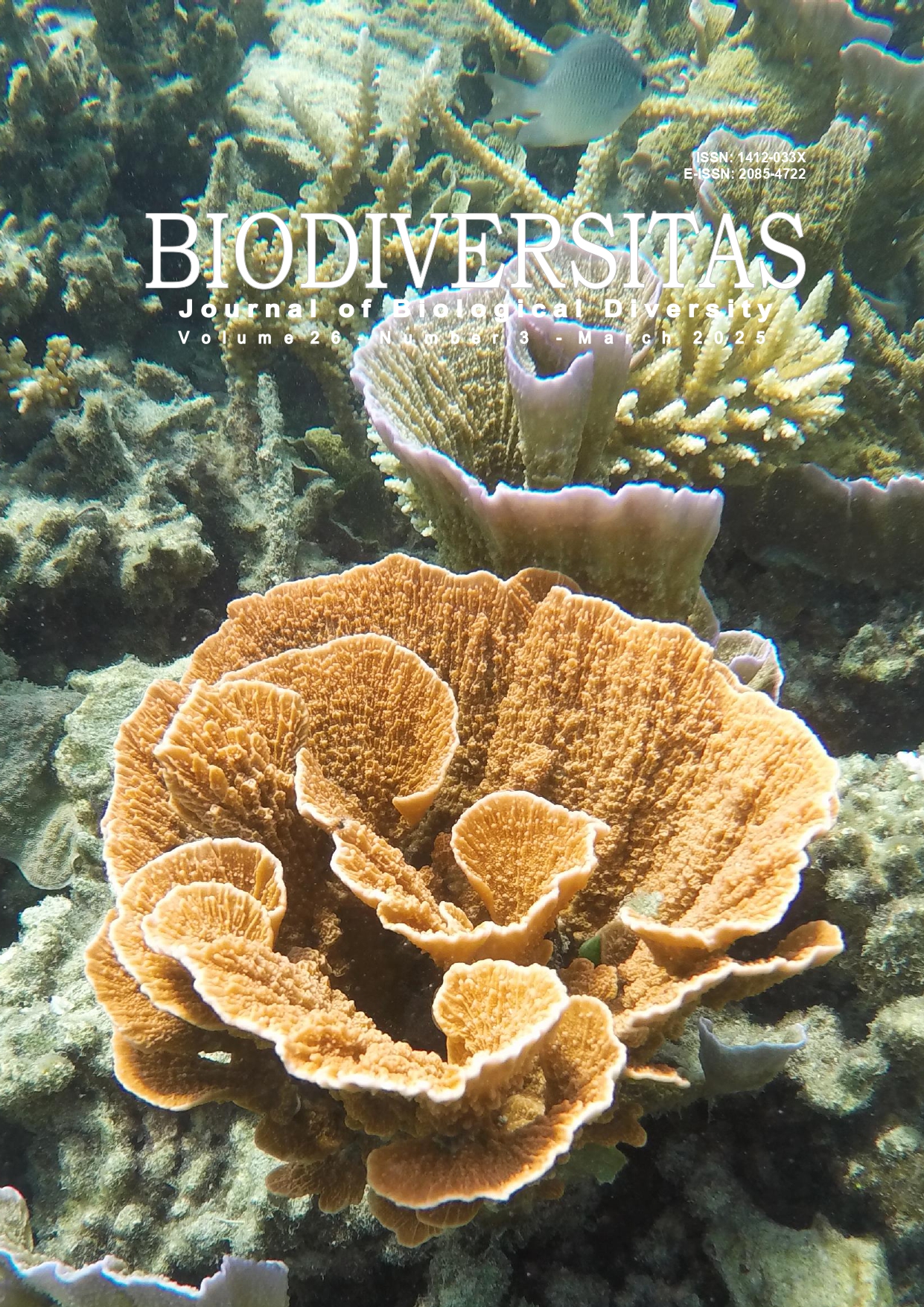Diversity and utilization of plants in kelekak agroforestry in Air Mesu Village, Central Bangka District, Indonesia
##plugins.themes.bootstrap3.article.main##
Abstract
Abstract. Hikmat A, Zuhud EAM, Al-Manar P, Wilyan R, Munggaran IK, Hidayat S, Robika. 2025. Diversity and utilization of plants in kelekak agroforestry in Air Mesu Village, Central Bangka District, Bangka Belitung Islands, Indonesia. Biodiversitas 26: 1105-1113. Kelekak is a traditional agroforestry system practiced in Bangka Belitung Islands, Indonesia which holds important ecological, economic and socio-cultural roles. Despite its importance, the existence of kelekak in these islands is increasingly pressured by land use changes due to the conversion to oil palm plantation and tin mines. This research aims to identify plant species found in kelekak agroforestry in Air Mesu Village, Central Bangka District and their utilization based on ethnobotanical information. The research was conducted using the interview method to 30 selected respondents. This study documented 87 plant species from 45 families found in kelekak with various types of use including for food, medicine, building materials, and firewood. The majority of plants are utilized to produce food, highlighting the importance of kelekak in sustaining local food security. Five plant species are identified to have a high Index of Cultural Significance (ICS), namely durian (Durio zibethinus), mangosteen (Garcinia mangostana), coconut (Cocos nucifera), rubber (Hevea brasiliensis) and cempedak (Artocarpus integer). The existence of kelekak is very important in supporting various needs of local community in Air Mesu Village.

